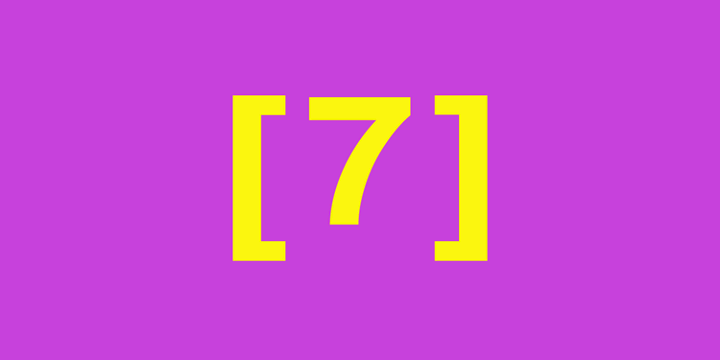Five New Year's Resolutions for gamers in 2016: No gym membership required

Late in the year is a time for reflection, game of the year lists and arguments about game of the year lists. As soon as the clock strikes 12am on New Year's Day however comes the time to look ahead to the future and ask how we can make it a better year than what came before.
Thousands of us will be signing up to the gym or ditching the booze this January, but here are some New Year's Resolutions for gamers to take on board, to help improve themselves before the rapture happens – or the year ends. Whichever comes first.
Stop equating time and money with value
We used to have to trudge down to the local Game, crumpled fivers in one hand and old games ready for trade-in in the other, just to be given the chance to buy the latest Call of Duty for several weeks' worth of saved-up pocket money.
Games used to go for 40, 50, even 60 pounds, and we'd play them until our fingers crusted over like a scaly pie just to feel like it was worth it. Even if the game was that year's crappy Sonic sequel, or some low-budget JRPG that sort of looked like Final Fantasy, but wasn't.
Nowadays, a game isn't worth getting on Steam until it's under £5 and at least 10 hours long on the first play through. People can get refunds if a game lasts less than two hours. Two hours! You'd pay a lot more for a film or a meal, and some of those aren't even that long. But because of Steam sales and mobile app prices, our expectation of what a single pound or dollar is worth has created this awful game-based economy where we always expect more for less.
Let's get back to basics. A game's value doesn't rest solely on its monetary or per-hour value, and nor should it. Appreciating a game's entertainment or emotional value will only encourage a wider, more exciting variety of things to play. Everybody wins!
Lower your standards and read reviews properly
High standards are great. They're responsible for people getting firsts at university and being able to get free meals at restaurants when you complain. We should be proud to have high standards, because otherwise we'd all still live in caves and have terrible grammar.
But remember, 7/10 is a high score. In fact, 70% is a first at university.
So if legions of young adults can pour out of their graduations, clad in oversize gowns and naive hope, faces beaming at having gained a very respectable score on their final exams... why are we so harsh on video games that do the same?
There are two main problems: the industry scoring system skews high, which devalues slightly lower scores, and the business folk behind development studios do stupid, number-hungry things like tying performance bonuses to arbitrary numbers on Metacritic. ANYONE can put a score up on Metacritic, so all they're doing is saying that they trust the internet to be fair.

Don't trust the internet. Ever. In fact, make that your New Year's Resolution on its own. The internet is a ridiculous place where everyone has a megaphone and no one wants to listen.
But sometimes, some publications put a lot of work and heart into a review. Some are eight-page masterpieces of writing by excellent, talented people, and they deserve attention. But the number they're obligated to put at the end says as much about what they think about the game as their word count.
So: read the whole review to understand what the critics actually thought, and even then, it doesn't matter all that much because your own enjoyment is still that: your own. It's useful to have someone's input, but like with film reviews, restaurant reviews and people warning you not to go into the toilet they just came out of, it's your decision in the end.
Stop encouraging publisher asshattery
Number-hungry business folk are usually the people responsible for trying to wring out as much of your loose change as possible. Whether that's through pre-orders or microtransactions, these business people know their audience well enough to exploit them. You see, gamers are a fairly entitled bunch, used to being the chosen ones, the heroes, the protagonists of every story. So when the game we're playing holds back a victory we feel we deserve, it's frustrating.
But what if that victory could be unlocked with a small amount of money? You've probably had times when you need to pee so badly that you're happy to pay 30p to dash into the train station loos, and you might have even said "keep the change" once to save yourself having to carry around any more useless coppers. Money is a way to avoid inconvenience, and microtransactions and pre-orders capitalise on this. You want the thing, don't you? Pay for the thing, and guarantee you get the thing.
It's certainly easier said than done, but we all need to be more patient. And stingy.

Stop loving guns so much
It's not that guns and gun-related games don't have their merits, it's just that a lot of them are so very similar. Like Fifa's year-on-year changes, they're basically charging you an annual fee to play a slightly different game. Not even better games necessarily – just different.
Can't we all just agree that Halo 2 and Call of Duty: Modern Warfare were the best, and just continue playing those?
Play more excellent mobile games
Quite a few people still assume mobile games didn't progress beyond Angry Birds and FarmVille. This view is not helped by TV and cinema adverts for things like Game of War and Clash of Clans – two games that clearly have enough going on in them to entice an audience of millions, but remain as generic as their titles imply.
There are, of course, a billion other generic games on various mobiles. Many of them geared towards heavy spenders; others targeting a younger market with bright colours and a gigantic merchandising budget. Screw those games. Screw 'em.
There are some unbelievably clever, creative and entertaining games out there. They're not all gorgeous-yet-slightly-pretentious Monument Valley types, either – though that game is worth a play. There are puzzle games, story games, logic games, word games, everything ranging from the "play this on the bus" variety to the braver kind like The Room, that expects your full and undivided attention.
It's the kind of resolution that benefits everyone – you get to play a great game, you tell friends, you support indie developers, they make more games. What a lovely economy to be a part of.
So hopefully this list doesn't sound too much like homework, and encourages you all to do games better. They deserve our very best selves. So polish yourself up, treat games with respect, and go into 2016 ready to be the very best.
For all the latest video game news follow us on Twitter @IBTGamesUK.
© Copyright IBTimes 2025. All rights reserved.






















